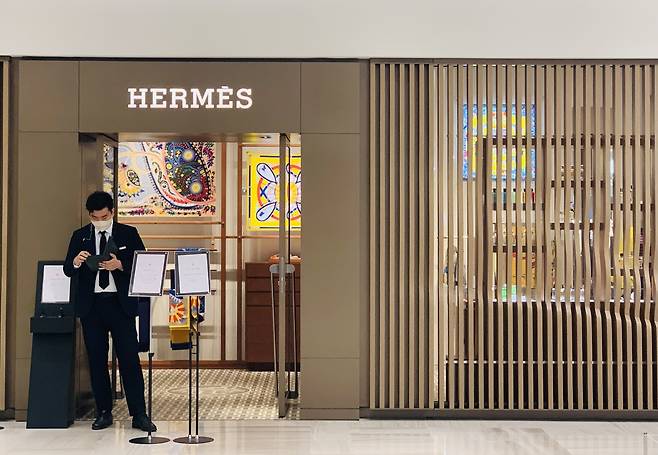S. Korea becomes world's 10th largest luxury market: report
이 글자크기로 변경됩니다.
(예시) 가장 빠른 뉴스가 있고 다양한 정보, 쌍방향 소통이 숨쉬는 다음뉴스를 만나보세요. 다음뉴스는 국내외 주요이슈와 실시간 속보, 문화생활 및 다양한 분야의 뉴스를 입체적으로 전달하고 있습니다.

With Millennials and Generation Z -- those born from the 1980s onward -- emerging as major players in the luxury industry, South Korea ranked No. 10 in high-end fashion transactions last year, a report showed Wednesday
According to Samjong KPMG, a Seoul-based consulting firm, the country’s luxury goods market size soared on-year by 29.6 percent to $5.8 billion in 2021. By 2024, it is projected to exceed $7 billion.
Foreign luxury brands in major department stores in South Korea have seen a 37.9 percent sales growth in the cited period. Due to pandemic lockdowns and travel restrictions, pent-up demand has led to purchasing expensive fashion items, the report said.
The US became the largest market for high-end fashion brands last year, recording $64.1 billion in transaction volume. China ranked second with $42.7 billion, followed by Japan ($26 billion), France ($15.1 billion) and the UK ($13.5 billion).
The report said new business trends are creeping into the global luxury industry. In particular, as Millennials and Generation Z are becoming major consumers for high-end fashion, contemporary brands with a younger consumer base are challenging traditional brands like Hermes, Louis Vuitton and Chanel.
Luxury powerhouses are also adopting digital branding strategies targeting Gen Z, the future deep pockets. Gucci and Balenciaga have started to adopt nonfungible tokens, AR, VR and 3D to showcase metafashion, digital runway and digital artwork.
Also, online platforms have become one of the key sales channels, accounting for 22 percent last year. E-commerce giants including Amazon and Alibaba and luxury brands have risen as major competitors against luxury platforms like Farfetch and Mytheresa, the report said.
A resell market boom is another burgeoning trend in high-end fashion industry. As consumers prefer experiencing luxury fashion rather than owning the items, the second-hand luxury market is fast-growing, the report said. Gucci and Burberry have already partnered up with second-hand platform The RealReal.
The report stressed that the luxury sector offers new investment opportunities. Since 2017, global investors have poured cash into Breitling, Blue Nile and Tiffany. But recently, investment gurus are eyeing online luxury platforms including Vestiaire Collective and Watchbox.
“South Korean luxury platforms and companies should follow a two-track strategy that maximize customer experience at brick-and-mortar stores and improve online access at the same time,” said Kim Yu-mi, director at Samjong KPMG, in the report. “As the resell market is expected to keep growing, they should come up with strategic business models as well.”
Kim advised local retailers to reshuffle brand portfolios that cater to the needs of the new consumer base and introduce luxury curating services.
By Byun Hye-jin(hyejin2@heraldcorp.com)
Copyright © 코리아헤럴드. 무단전재 및 재배포 금지.